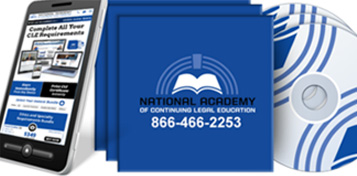About This Course
Title VII of the Civil Rights Act requires that employers accommodate the religious beliefs of their employees pursuant to. Ensuring that employers understand the meaning of this and how to ensure legal compliance is no easy task.
This informative webinar will provide an in-depth understanding of what Title VII requires for religious accommodations, how the interactive process under Title VII differs from the ADA interactive process and what some of the legal pitfalls that can derail an employer's compliance efforts are.
Avoiding the many mistakes that employers can make with regard to religious accommodations is key and many employers get it wrong as we saw in the Supreme Court case involving Abercrombie & Fitch dealing with a female employee who was not hired allegedly for wearing a head covering in violation of the policies and procedures of Abercrombie & Fitch.
This CLE will provide an in-depth summary of what an employer is required to do to provide a religious accommodation for an employee's religious beliefs including:
- Understanding the broad definition of Title VII of "religious belief, observance or practice"
- Learn whether the religion has to be a well-known religion or even a mainstream religion at all
- Understand the interactive process under Title VII and how it differs from the interactive process under the ADA
- Learn the many different types of accommodations an employer might have to provide
- Understand how to ensure compliance under Title VII
- Does the obligation to accommodate include allowing an employee to pray during the workday?
- Understand whether employers need to allow an employee time off for religious observances on religious holidays?
- Learn what the Supreme Court held in Abercrombie and Fitch and how it impacts employers' legal obligations
- Understand the legal requirements for what an employee has to tell you to trigger your obligation to engage in the interactive process






